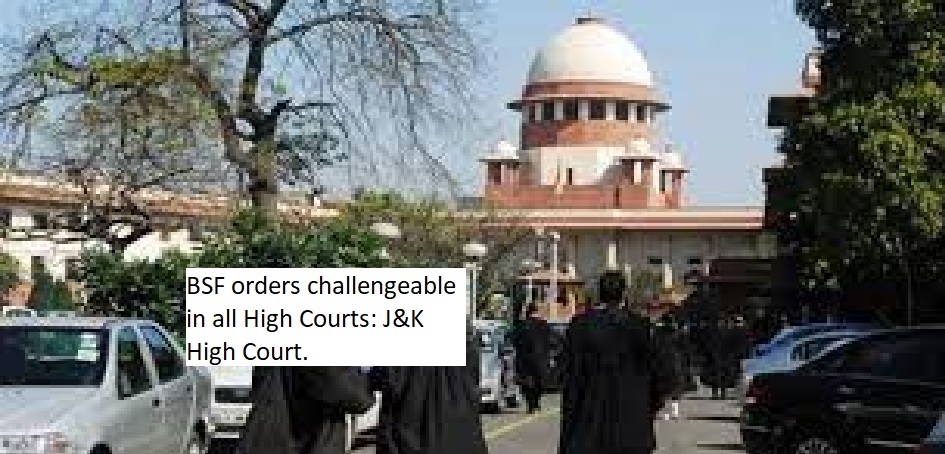


The Jammu and Kashmir & Ladakh High Court, in its ruling on the annulment of a Sashastra Seema Bal (SSB) Constable's removal order, underscored that the Seema Suraksha Bal (SSB) is a nationwide force under the Union of India, rendering its decisions appealable before any High Court in the country. Justice M A Chowdhary, presiding over the case, made these observations during the hearing of a petition filed by a Constable (GD) challenging his Removal Order issued by the Commandant Training Centre Sapri SSB Himachal Pradesh.
The petitioner contended that the removal order contravened the Central Reserve Police Force Act, 1949, and its associated rules. He argued that a formal departmental inquiry was not conducted, and principles of natural justice were neglected. The petitioner explained that his absence during the turmoil in the Kashmir Valley in 2008 was due to seeking leave to protect his family from threats by anti-national elements, which allegedly went unsanctioned. Despite returning to duty after being unable to continue training, the petitioner claimed that his rejoining was disallowed without a proper hearing.
In challenging his subsequent removal, the petitioner asserted that Rule 27 of the CRPF Act, 1949, and Rules 1955 mandated a formal departmental inquiry before a major punishment such as removal from service. He argued that the impugned order incorrectly invoked Rule 14 of the Central Civil Services (CCA) Rules, 1965. The respondents countered, stating that the writ petition was not maintainable due to lack of territorial jurisdiction, as the removal order was issued by the Commandant Training Centre SSB at Sapri Kangra Himachal Pradesh.
Justice Chowdhary addressed the jurisdictional matter, noting that objections were not raised when the petition was admitted in 2015. The court emphasized that raising jurisdictional issues at this late stage was untenable, especially considering the pan-India presence of the SSB, a force of the Union of India.
Observing that the petitioner resided within the territorial jurisdiction of the court, being a permanent resident of district Budgam, and the removal order was served at his permanent address, the court deemed the petitioner competent to maintain the Writ Petition.
Analyzing Rule 27 and 102 of the CRPF Rules, the court opined that Rule 102 could be utilized for a fair departmental inquiry, even in cases related to members of the CRPF. The court emphasized that prescribed procedures were not followed in the petitioner's case, and a structured inquiry, including serving the articles of charge, was not provided. The removal order was issued promptly after recording unauthorized absence, without affording the petitioner a fair hearing.
Highlighting the absence of a presenting officer in the proceedings, the court reiterated the importance of appointing a presenting officer in cases involving major punishments during departmental proceedings. Consequently, the court held that the removal order lacked legal sustainability, quashing it and deeming the petitioner's dismissal untenable.
The court directed the immediate reinstatement of the petitioner into service, allowing the respondents to conduct requisite departmental proceedings under the CRPF Act, 1949, and relevant rules after the petitioner resumed duties. This comprehensive ruling addressed jurisdictional issues, procedural lapses, and affirmed the principles of natural justice in the context of the petitioner's removal from service.
TAGS: Seema Suraksha Bal Union of India Removal Order Central Reserve Police Force Act 1949 Rules 1955 Unauthorized absence Departmental inquiry